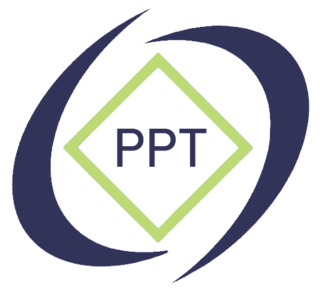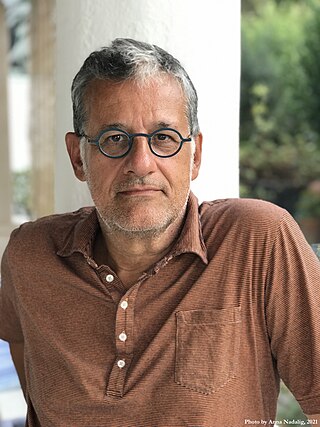Members
The society has approximately 1,100 members worldwide.[ citation needed ] Membership includes a free subscription to Psychotherapy Research.

| Formation | 1970 |
|---|---|
| Website | www.psychotherapyresearch.org |
The Society for Psychotherapy Research (SPR) is a learned society founded in 1970. It is multidisciplinary, international association for research into psychotherapy. The idea of an international society of psychotherapists was discussed at an annual meeting of the American Psychological Association in 1968. [1]
The society has chapters in the United Kingdom, the rest of Europe, Latin America, and North America. [2] The Society for Psychotherapy Research also has what it describes as "Area groups" in Australia, Italy, and other specific locations. [2]
The academic journal of the Society for Psychotherapy Research, Psychotherapy Research , is published bi-monthly by Routledge. [3]
SPR encourages the development of research on psychotherapy as well as aims to support and enhance both the empirical basis and applied value of research on psychotherapy. Psychotherapy research is stimulated, for instance, by providing small research grants for pilot studies which, in turn, enable researchers to later obtain larger grant funding. The society also plays an important role in providing opportunities to psychotherapy researchers for interaction and dialogue by organizing regular meetings to enable communication about research, share methodological innovations, and disseminate research findings and knowledge of their applications. It makes use of print and electronic media to disseminate the results of psychotherapy research and to share ideas related to research methods.
The creation of a Society for Psychotherapy Research goes back to a meeting of psychotherapy researchers in San Francisco in 1968, which was associated to the annual meeting of the American Psychological Association. [1] This meeting was sponsored by small donations of the APA Division of Psychotherapy and the American Academy of Psychotherapists. The founders of the group were Kenneth I. Howard and David Orlinsky, with support from Lester Luborsky, Nathaniel Raskin, and Hans Herrman Strupp. [1] The first official conference took place in Highland Park, Illinois in 1969. [1]
As of December 2017, the society consists of four regional chapters, two area groups, and five interest sections. [2] The regional chapters are:
In some areas, there are many active SPR members and local meetings are organized. The area groups are: [2]
In addition to the chapters and area groups, there are sections on specific topics that are of interest to members. [2] As of December 2017, there are five special interest sections:
The society has approximately 1,100 members worldwide.[ citation needed ] Membership includes a free subscription to Psychotherapy Research.

The international annual meetings take place at the end of June and have been organized since 1970. All scientific programs of the meetings are available online, back to the year 1972. [4]
The past presidents of the SPR have been: [5] [6]
| 1970–79 | 1980–89 | 1990–99 | 2000–09 | 2010–19 |
|---|---|---|---|---|
| 1970 Kenneth I. Howard | 1980 Mardi J. Horowitz | 1990 Horst Kächele | 2000 Robert Elliott | 2010 Lynne Angus |
| 1971 David E. Orlinsky | 1981 Stanley D. Imber | 1991 Lorna Smith Benjamin | 2001 Franz Caspar | 2011 Guillermo de la Parra |
| 1972 Hans Herrman Strupp | 1982 Alan S. Gurman | 1992 Leonard M. Horowitz | 2002 Karla Moras | 2012 George Silberschatz |
| 1973 Lester Luborsky | 1983 Arthur H. Auerbach | 1993 David A. Shapiro | 2003 Mark Aveline | 2013 Hadas Wieseman |
| 1974 Allen E. Bergin | 1984 A. John Rush | 1994 Clara E. Hill | 2004 John Clarkin | 2014 Jeanne Watson |
| 1975 Sol L. Garfield | 1985 Jim Mintz | 1995 Klaus Grawe | 2005 Michael J. Lambert | 2015 J. Christopher Perry |
| 1976 Aaron T. Beck | 1986 Larry E. Beutler | 1996 Paul Crits–Christoph | 2006 Erhard Mergenthaler | 2016 J. Christopher Muran |
| 1977 Morris B. Parloff | 1987 Larry E. Beutler | 1997 William B. Stiles | 2007 Jacques Barber | 2017 Paulo P. Machado |
| 1978 Irene Elkin | 1988 Charles R. Marmar | 1998 Marvin R. Goldfried | 2008 Bernhard Strauß | 2018 Mariane Krause |
| 1979 Edward S. Bordin | 1989 Leslie S. Greenberg | 1999 William E. Piper | 2009 Louis G. Castonguay | 2019 Bruce Wampold |
| 2020 - | ||||
| 2020 Martin grosse Hothford | ||||
| 2021 Shelley McMain | ||||
| 2022 Wolfgang Lutz | ||||
| 2023 Andres Roussos | ||||
| 2024 Shigeru Iwakawe |
Psychotherapy is the use of psychological methods, particularly when based on regular personal interaction, to help a person change behavior, increase happiness, and overcome problems. Psychotherapy aims to improve an individual's well-being and mental health, to resolve or mitigate troublesome behaviors, beliefs, compulsions, thoughts, or emotions, and to improve relationships and social skills. Numerous types of psychotherapy have been designed either for individual adults, families, or children and adolescents. Certain types of psychotherapy are considered evidence-based for treating some diagnosed mental disorders; other types have been criticized as pseudoscience.

A psychologist is a professional who practices psychology and studies mental states, perceptual, cognitive, emotional, and social processes and behavior. Their work often involves the experimentation, observation, and interpretation of how individuals relate to each other and to their environments.
The British Psychological Society (BPS) is a representative body for psychologists and psychology in the United Kingdom.
Body psychotherapy, also called body-oriented psychotherapy, is an approach to psychotherapy which applies basic principles of somatic psychology. It originated in the work of Pierre Janet, Sigmund Freud and particularly Wilhelm Reich who developed it as vegetotherapy. Branches also were developed by Alexander Lowen, and John Pierrakos, both patients and students of Reich, like Reichian body-oriented psychotherapy and Gerda Boyesen.
John Rowan was an English author, counsellor, psychotherapist and clinical supervisor, known for being one of the pioneers of humanistic psychology and integrative psychotherapy. He worked in exploring transpersonal psychology, and wrote about the concept of subpersonality.
The British Association for Counselling and Psychotherapy (BACP) is a professional body for counsellors and psychotherapists practising in the United Kingdom.
Larry E. Beutler ABPP is a clinical psychologist.
The American Group Psychotherapy Association (AGPA) is a not-for-profit multi-disciplinary organization dedicated to enhancing the practice, theory and research of group psychotherapy.

The Association for Applied Psychophysiology and Biofeedback (AAPB) was founded in 1969 as the Biofeedback Research Society (BRS). The association aims to promote understanding of biofeedback and advance the methods used in this practice. AAPB is a non-profit organization as defined in Section 501(c)(6) of the Internal Revenue Service Code.
Hans Hermann Strupp was born in Frankfurt, Germany and died in the U.S. He moved from Nazi Germany to the U.S. and he pursued a PhD in Psychology at George Washington University in Washington, D.C. where the Department of Psychiatry granted him with a Certificate in Applied Psychiatry for Psychologists. One of the founders of this school was Harry Stack Sullivan whose work had a large impact on Strupp's academic career and thinking. Hans became a Full Professor at Vanderbilt University’s Department of Psychology in 1966 and was named Distinguished Professor in 1976.
Common factors theory, a theory guiding some research in clinical psychology and counseling psychology, proposes that different approaches and evidence-based practices in psychotherapy and counseling share common factors that account for much of the effectiveness of a psychological treatment. This is in contrast to the view that the effectiveness of psychotherapy and counseling is best explained by specific or unique factors that are suited to treatment of particular problems.

Positive psychotherapy is a psychotherapeutic method developed by psychiatrist and psychotherapist Nossrat Peseschkian and his co-workers in Germany beginning in 1968. PPT is a form of humanistic psychodynamic psychotherapy and based on a positive conception of human nature. It is an integrative method that includes humanistic, systemic, psychodynamic, and cognitive-behavioral elements. As of 2024, there are centers and training available in twenty countries. It should not be confused with positive psychology.
Lester B. Luborsky (1920–2009) was one of the founders of scientific research in psychotherapy.
The International Society of Political Psychology (ISPP) is an interdisciplinary not-for-profit organization, representing all fields of enquiry involved with the exploration of relationships between both psychological and political processes and phenomena. Members include psychologists, political scientists, psychiatrists, historians, sociologists, economists, anthropologists, as well as journalists, government officials and others. The Society is international, with members from all regions of the world: the Americas, Europe, Asia, the Middle East, and Africa. The Central Office is located in North Carolina, USA. Throughout its history, the ISPP has offered encouragement to those who actively engaged in a wide spectrum of disciplinary approaches to political psychology. Members receive the Society's journal, Political Psychology and also access to the annual Advances in Political Psychology; ISPPNews, the Society's newsletter; reduced registration fees at ISPP's Annual Scientific Meeting; occasional discounts on non-ISPP publications; and voting privileges. ISPP has the following stated aims:
Klaus Grawe was a German psychotherapeutic researcher.
Jay Lebow is an American family psychologist who is senior scholar at the Family Institute at Northwestern University, clinical professor at Northwestern University and is editor-in-chief of the journal Family Process. He is board certified by the American Board of Professional Psychology. Lebow is known for his publications and presentations about the practice of couple and family therapy, integrative psychotherapy, the relationship of research and psychotherapy practice, and psychotherapy in difficult divorce, as well as for his role as an editor in the fields of couple and family therapy and family science. He is the author or editor of 13 books and has written 200 journal articles and book chapters.

Vittorio Lingiardi is an Italian psychiatrist and psychoanalyst, Full Professor of Dynamic Psychology and past Director of the Clinical Psychology Specialization Program (2006-2013), Faculty of Medicine and Psychology, Sapienza University of Rome, Italy. He has coordinated with Nancy McWilliams the second edition of the Psychodynamic Diagnostic Manual, the PDM-2.

John Christopher Muran is an American clinical psychologist and psychotherapy researcher.
Terence J. G. Tracey is an American psychologist, author and researcher. He is professor emeritus of counseling and counseling psychology at Arizona State University. He is also a visiting professor at University of British Columbia. He has served in many administrative positions at Arizona State University including department head and associate dean. He is the former editor-in-chief of Journal of Counseling Psychology.
The Lindauer Psychotherapiewochen (LP) are specialist conferences primarily intended as further training for doctors, psychologists, and child and youth psychotherapists, especially in the field of psychodynamic psychotherapy. These conferences span one-week and have been held annually in April, in Lindau, since 1950. Since 1967, organization of the conference has been run by the Vereinigung für psychotherapeutische Fort- und Weiterbildung.